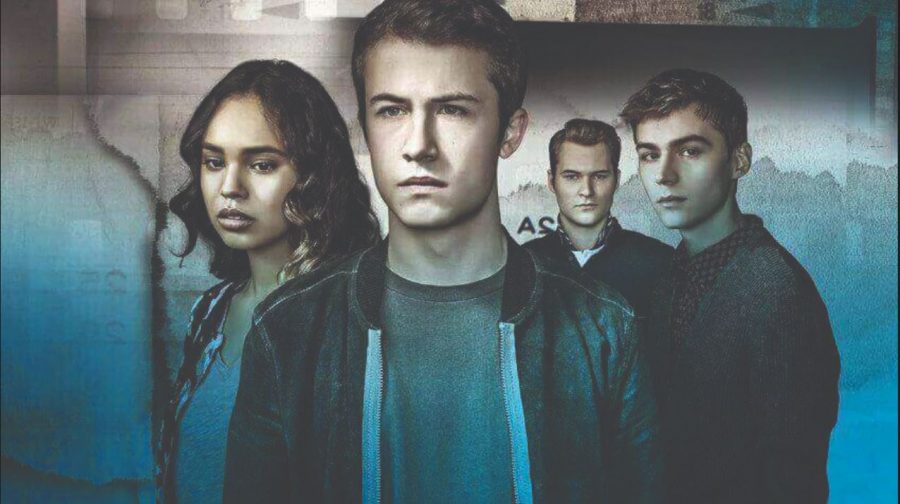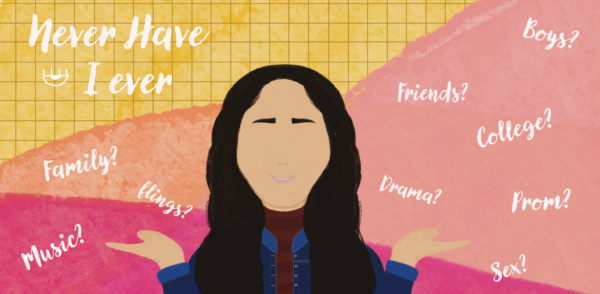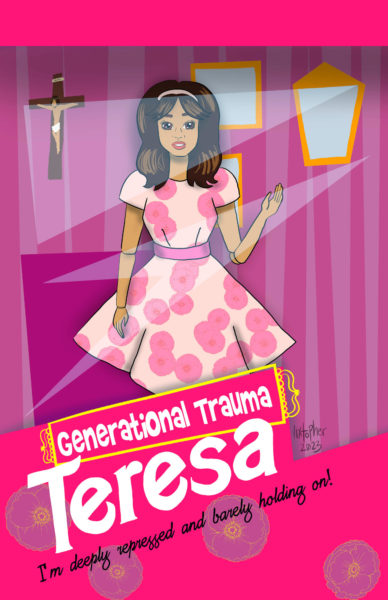Secrets. Lies. Popularity. Drama.
‘Thirteen Reasons Why’ Season 3 Review
Whether your high school career just concluded or you spent the entirety of your freshman year recalibrating your Myspace Top 8, most of us have experienced the same whirlwind of emotions about high school. Well, the third installment of “Thirteen Reasons Why” came along, injected said emotions with liberal dose of steroids, and dropped them smack dab in the middle of Liberty High.
When Netflix announced that it had greenlighted a third season of “Thirteen Reasons Why,” it would be safe to assume that Season three would center around the fallout of the school shooting that almost was. While the writers opted against completely abandoning that storyline, Tyler’s attempted massacre took a surprising backseat to a classic whodunit angle, a tired trope that was elevated by an enticing combination of character development and redemption tales.
Perhaps the producers identified that, considering the current political climate in America, depicting (or God forbid, glorifying) a school shooter might lead to actual mass murder.
On the other hand, it’s possible that the writing staff felt the storyline had exhausted its welcome and instead opted to manufacture a totally different narrative. Either way, “Thirteen Reasons Why” returned to Netflix with an abundance of its trademark teenage angst.
Season three was not perfect by any means. First, the writers lazily introduce a new character for the sake of plot advancement. Ani, whose mother is a caretaker for the Walker family, may unintentionally be the most annoying character in the history of television.
From day one, she is afforded an unbridled level of social authority. Throughout the entirety of Season three, she continuously probes into the personal lives of her newfound friends, demanding answers when in any realistic scenario, no one in their right mind would feel entitled to do so.
Second, Season three features an entire faction of Liberty High attempting to shield Tyler Down from the ramifications of trying to shoot up a school. Rather than report Tyler for attempting to massacre the entire school, Clay and company attempt to use their nonexistent experience with crisis management to coach Tyler, whose emotions are visibly and dangerously volatile in the immediate aftermath of “the incident,” to reconsider his murderous agenda.
Sure, Tyler was the victim of a horrenous sexual assault in Season 2, but at what point are we no longer expected to remain empathetic towards those attempting mass murder?
My last criticism centers around the relegation or complete absence of main characters. Courtney is seen very briefly in only a handful of scenes, though her absence can be explained by her pending graduation. Marcus, Tommy and Sheri are completely absent. Cyrus and Mackenzie are essentially demoted to props as each character appears in only two episodes.
Unfortunately, the writers failed to introduce new characters interesting enough to fill the void left by departing actors and reduced roles.
Season three centers around the disappearance of serial rapist Bryce Walker, whose body was discovered shortly after a homecoming football game that devolved into violence and chaos.
Relative indifference surrounding his disappearance shifts to obligatory mourning, though the impact of premature loss was punctuated by a misplaced protest at Bryce’s funeral from Jessica Davis’s assembly of sexual assault survivors, aptly named “HO,” a title which is described as an attempt to diminish the impact of the slur by “reclaiming it.”
However, when Jessica balks at the prospect of protesting Bryce’s funeral, Casey, a character introduced as a headstrong ally of Jessica, scathingly disparages her, claiming Jessica’s reluctance to protest Bryce’s funeral casts her as a victim rather than a survivor.
Casey, becoming enraptured by the concept of scandalization, regardless of whether the execution remain abstract or readily visible, creates a fascinating dialogue that explores whether it’s more important to be loud or remain constructive.
HO is righteous in their vendetta against Bryce and rape culture, but it is hard to not take umbrage at HO’s choice to sabotage the funeral. Protesting a funeral only hurts the grieving mourners who loved the departed rather than the deceased themselves.
Such a complex dynamic is part of the genius of Season three, as the writers expertly manipulate our emotions so that even the most morally righteous parties operate in a manner that casts the most callous antagonist in a sympathetic light.
Upon learning of Bryce’s death, questions arise as to who the responsible party is. This is where Season three finally finds it footing, as nearly every single character, including Bryce’s own parents, harbors a jealously guarded motive.
Zach develops a relationship with Bryce’s ex-girlfriend Chloe. Clay hosts two concurrent vendettas against Bryce. Justin and Jessica each deal with the aftermath of Bryce victimizing Jessica.
The list goes on and on, casting a shadow over nearly every character and making for some absolutely brilliant television. Such uncertainty reinvented the mundane nature of a classic whodunit by weaving a complex web of tangible revenge stories that were almost offset by the moral compasses of a wholesome, if flawed, group of protagonists.
The writers also offer a half-hearted attempt at illustrating the idea that Bryce is genuinely seeking to redeem himself. Ani, being the insufferably annoying character that she is, is instrumental to this device, as her receptiveness to his sexual advances and general friendliness highlight Bryce’s most endearing features.
This is despite the fact that the audience is forced to acknowledge that Jessica’s newest ally and partner in HO is literally laying with her rapist. However, I would be remiss if I failed to acknowledge the inconsistency in the way the writers depict Bryce.
One moment, Bryce is shown flashing the same malice and indifference that we became accustomed to in the first two seasons. The next, he’s sobbing on a yoga mat and offering sincere gestures of apology to anyone forgiving enough to listen.
But, once again, these are kids we are dealing with here, young men and women who are attempting to discover their true selves as they desperately cling to misguided loyalties and allegiances. Because of that, these contradictions are an important storyline instrument, as they cast further doubt on who actually sought out vigilante justice against Bryce.
Season three isn’t a must-watch, but if you’re able to look beyond inconsistent character portrayals and the agonizing introduction of Ani, Season three is a worthwhile investment. It’s an engrossing tale that follows a community simultaneously united and divided by the secrets they begrudgingly protect.
While the main focus of the season is the eventual reveal of both the murderer and his or her motive, viewers will come to appreciate the complex entanglement of tragedy, unity and redemption that will inevitably define the legacy of Season three of “Thirteen Reasons Why.”
Your donation will support the student journalists of Northeastern Illinois University's The Independent, either in writers' payment, additional supplies and other items of note. Your contribution will allow us to purchase additional equipment for writers/photographers/illustrators and cover our annual website hosting costs.






